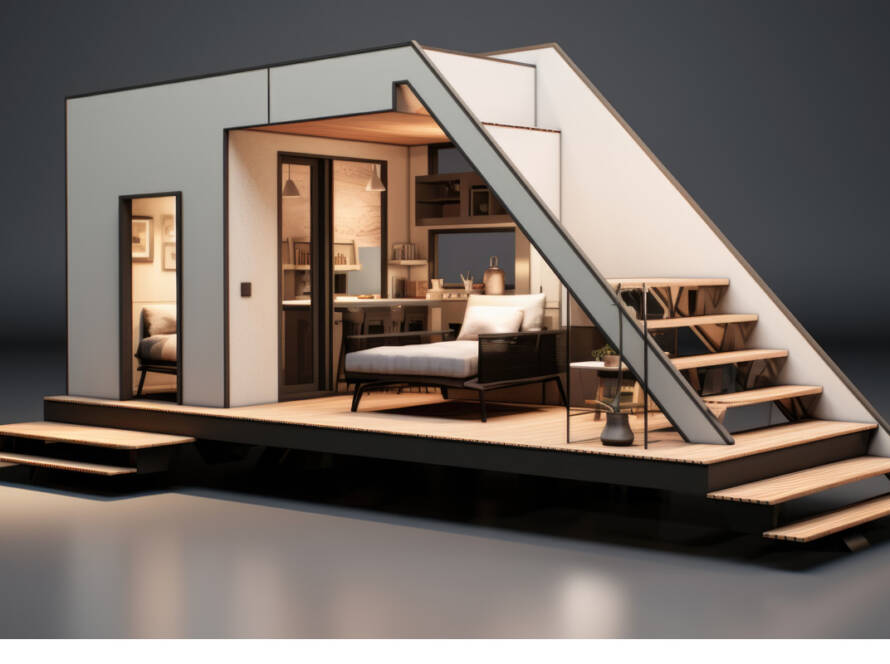The tiny house movement has gained popularity in recent years as more and more people are choosing to downsize their living space and embrace a simpler lifestyle. While living in a tiny house may not be for everyone, it offers numerous advantages for those willing to make the change.
One of the main advantages of living in a tiny house is the cost savings. With a smaller space, you can significantly reduce your expenses on utilities, maintenance, and even property taxes. In fact, many tiny house owners are able to live mortgage-free, freeing up their finances for other things such as travel, hobbies, or savings. This financial freedom can also allow individuals to retire earlier or work less, giving them more time to pursue their passions.
In addition to financial benefits, living in a tiny house also has a positive impact on the environment. With a smaller footprint, tiny homes require fewer resources to build and maintain, making them a more sustainable housing option. Many tiny houses are also built with eco-friendly materials and utilize renewable energy sources, further reducing their impact on the environment. For those looking to live a more environmentally conscious lifestyle, a tiny house is a great option.
Another advantage of living in a tiny house is the freedom it provides. With a smaller living space, you are forced to declutter and simplify your life. This can be incredibly liberating as you let go of unnecessary possessions and focus on the things that truly matter to you. In a tiny house, you also have the ability to easily pick up and move to a new location, whether it be for a job opportunity, a change in scenery, or simply to explore new places.
Living in a tiny house also promotes a minimalist lifestyle, which can have numerous benefits for mental and emotional well-being. With less space to fill, individuals are encouraged to focus on experiences rather than material possessions. This can lead to a more fulfilling and intentional life, free from the stress and pressure of consumerism. Tiny house living also encourages a closer connection with nature, as many tiny houses are designed to be off-grid and self-sufficient, allowing residents to live in harmony with their surroundings.
Lastly, living in a tiny house fosters a strong sense of community. Many tiny house owners live in close-knit communities where they can share resources, skills, and experiences with their neighbors. This sense of community can provide a support system and a sense of belonging, something that is often lacking in larger, more isolated neighborhoods.
In conclusion, while living in a tiny house may not be for everyone, it offers numerous advantages for those looking to simplify their lives, reduce their environmental impact, and embrace a community-oriented lifestyle. With its financial, environmental, and personal benefits, it’s no surprise that the tiny house movement continues to grow in popularity. So why not consider making the switch to a tiny home and see how it can positively impact your life?


